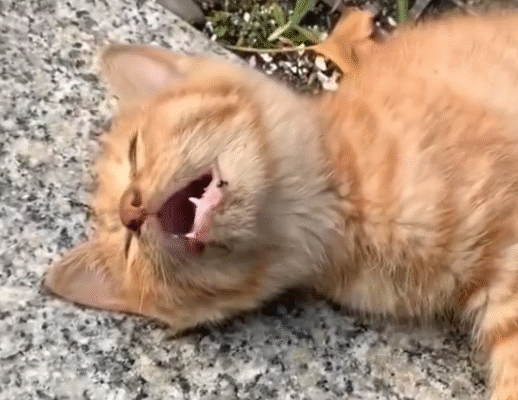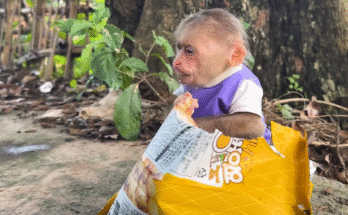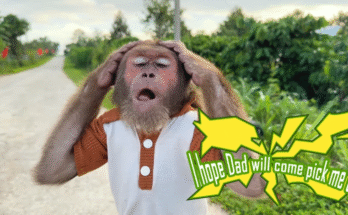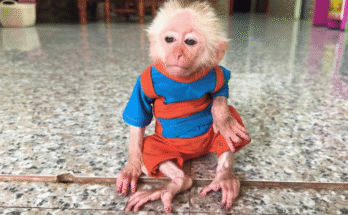It was an ordinary morning — dew glistened on the grass, birds chirped softly in the trees, and the sun peeked through the mist like it always did. But that day, something unexpected happened. A small choice, a simple act of kindness, changed the course of another life forever. And in doing so, it changed mine, too. That’s why I’ll always remember the moment when I helped it to continue living.
The Discovery
I was taking my usual walk down the wooded path behind my house. It was my favorite part of the day — peaceful, quiet, and away from screens and noise. I’d often see squirrels darting across tree branches, or the occasional rabbit hopping through tall grass. But that day, something caught my eye.
At first, I thought it was a crumpled leaf or maybe an old piece of cloth. But as I got closer, I saw it move. Barely. It was a tiny bird — feathers soaked, body trembling. It looked like it had fallen from its nest during last night’s storm. It didn’t chirp or try to flee; it just lay there, helpless, as if it had already accepted its fate.
I bent down slowly. It was a baby robin, barely covered in feathers. I could see the rapid movement of its chest, its heartbeat visible beneath fragile skin. It blinked slowly, too weak to resist. My heart clenched. I couldn’t leave it.

The Decision
I hesitated for a moment. I wasn’t a vet or a bird expert. What if I picked it up wrong? What if I did more harm than good? But then I realized — doing nothing would certainly lead to its death. It had no chance alone on the forest floor. Predators. Cold. Hunger.
So I took off my scarf, gently wrapped the bird in its soft folds, and carefully carried it home.
The Rescue Begins
Once home, I created a small shelter inside a cardboard box lined with an old t-shirt. I placed the bird inside and set the box in a quiet, warm corner of my room. Then, I began researching.
Thank goodness for the internet. I learned how to keep it warm using a rice-filled sock warmed in the microwave. I read that baby birds need feeding every 15–20 minutes during daylight hours. Not just any food — but soft, mashed-up worms, egg yolk, or special baby bird formula from pet stores.
I made a temporary diet using crushed hard-boiled egg yolk mixed with a bit of water. With a tiny dropper, I fed it the best I could. At first, it didn’t respond. But then — it opened its mouth just a little. It was trying. That tiny movement filled me with hope.

The Days That Followed
Caring for the bird became a full-time job. I named it Echo — because when it first chirped days later, it was a faint sound, like an echo coming back from far away.
Echo was weak, but every day brought progress. The trembling stopped. Its eyes stayed open longer. Soon, it began to stretch its wings and hop inside the box. I was amazed by the transformation. Every feather that came in, every chirp it let out, was like a small miracle.
I couldn’t believe how attached I became. I watched Echo like a proud parent. I cleaned its box, adjusted the heat, prepared its meals, and kept a journal of its progress. But more than anything, I talked to it. I encouraged it.
“You’re strong,” I’d whisper. “You’re going to make it.”

Letting Go
As Echo grew stronger, I knew the day would come when I’d have to let it go. Birds are meant to fly. They’re meant to soar through the sky, not live in boxes. As hard as it would be, I had to prepare Echo — and myself — for that moment.
I brought in small twigs and leaves, letting it practice perching. I moved the box near the window, so it could see the world outside. I even played recordings of other robins to awaken its instincts.
Finally, one sunny morning, the moment came. Echo fluttered its wings with more energy than ever before. I carried the box outside, heart pounding. I opened the top and stepped back.
Echo hesitated. Then, with a sudden flap, it rose into the air. Not perfectly — but enough. It landed on a nearby branch and chirped. Once. Twice. Then it flew a little farther.
I stood there in silence, both heartbroken and proud.
The Meaning of It All
You might think this is just a story about a bird. But it’s not. It’s about life. About compassion. About doing something — even something small — that makes a difference.
That bird had no voice to ask for help. It didn’t cry out or beg. But it still deserved a chance to live. And by stepping in, by choosing to help, I gave it that chance. I didn’t need to be a specialist or a hero. I just needed to care.
The Ripple Effect
Helping Echo changed me. It made me more observant. More patient. More aware of the delicate lives around me. Since then, I’ve stopped to help turtles cross the road, picked up stray dogs, and volunteered at a wildlife center. I realized that life is everywhere — and sometimes it just needs a helping hand.
The phrase “I helped it to continue living” now means more to me than I ever thought it could. It’s a reminder that even the smallest acts of kindness can save a life. Whether it’s a bird, a dog, a stranger, or even a tree in need of water — helping something continue living is the most human thing we can do.
Full Circle
Months later, I was walking down the same trail where I found Echo. I paused beneath a tree and heard a familiar chirp. Maybe it was just another robin. Or maybe — just maybe — it was Echo, singing its thanks.
I’ll never really know. But what I do know is this:
That morning, I didn’t just save a bird. I discovered the power of kindness. I saw how life, even on the brink, can bounce back with a little help. And now, every time I hear the wind rustle the trees or see a bird take flight, I remember that simple truth.
I helped it to continue living. And that made all the difference.



